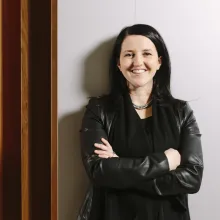FREED: Frequency and E-Field Enhancement of iTBS for Depression
FREED aims to improve the treatment of treatment-resistant depression (TRD) through a novel, personalised approach.
Project status
Content navigation
About
FREED aims to improve the treatment of treatment-resistant depression (TRD) through a novel, personalised approach. By individualising the stimulation frequency and location of intermittent theta burst stimulation (iTBS) transcranial magnetic stimulation (TMS), FREED seeks to enhance clinical outcomes for TRD patients.
This 3-arm, double-blind RCT will recruit 75 adult TRD patients to compare the efficacy of individualised iTBS (frequency and e-field targeting approaches), to targeted iTBS (e-field targeting only), to standard iTBS. We hypothesise that individualised iTBS will not only improve frontoparietal theta connectivity but also result in greater reductions in depressive symptoms compared to targeted or standard iTBS. Treatment outcomes will be evaluated using clinical assessments and electroencephalography (EEG) data.
FREED’s novel approach has the potential to significantly advance the treatment landscape for TRD, offering hope for more effective and personalised interventions for those with TRD.
Members
Principal investigator
Co-investigator
Other members
- Dr Angel Peterchev
- Dr Gregory Applebaum
- Dr Corey Weissman
- Dr Xin Tu
- Dr Itay Hadas



